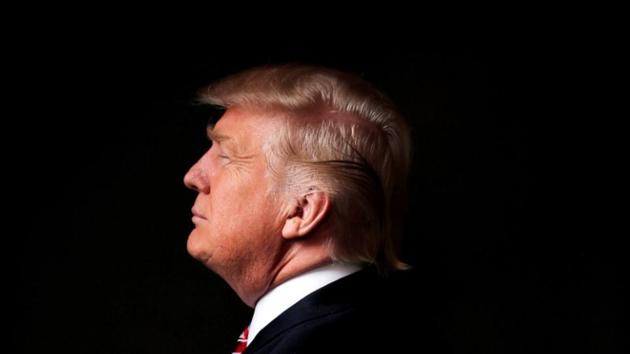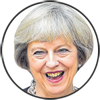Rise of the right in 2016: Europe’s political landscape has changed
Syrian refugees and terror attacks have paved the way for right-wing parties and personalities to prosper. Anti-immigration, anti-EU and anti-Muslim platforms are now shaping politics in Europe.
That Donald Trump will be the president of the United States is a thought that still boggles many. Liberals are particularly in shock; they are attempting to understand how they could misread the extent of his appeal and wonder if his election will bolster right-wing forces elsewhere in the world.

This fear is palpable in Europe where analysts warn that a significant reordering of the political landscape is underway. This is not surprising as Europe has not been at peace with itself in recent years. The 2008 financial crash severely dented its economies, sparking a debt crisis and generated high levels of unemployment. This in turn led to debates within countries about immigrants, foreigners, assimilation, national identity and so on. The surge of refugees fleeing the Syrian civil war and periodic terrorist attacks added to the fraught climate, creating the context for right-wing parties and personalities to prosper. The European Union’s policies of integration have been blamed for the situation and thus anti-EU, anti-immigration and anti-Muslim platforms have gained ground.
The effects have spread far and wide. Right-wing parties – which span the ideological spectrum from conventional right of Centre formations to far-right groups, have increased support across the continent, including in France, Germany, Austria, Netherlands, Denmark, Sweden, Hungary and Italy. Norbert Hofer of the Freedom Party in Austria lost a rerun of the presidential election to a Greens-backed independent candidate Alexander Van der Bellen this month but secured 48.3% of the vote. The Danish People’s Party came in second in the June 2015 parliamentary elections. The far-right Party for Freedom in Netherlands, whose leader Geert Wilders was recently found guilty of inciting racial discrimination, is expected to come in first or second in elections due in March. The anti-immigrant Alternative for Germany, led by Frauke Petry, secured 2 million votes in 2013 elections, it has done well in regional parliaments and is expected to win seats in parliament next year.
Read more | From Panama Papers to presidents’ impeachments: 2016 marked by corruption scandals
Far-right parties are not in a position to seize power in the continent. Political scientist Cas Mudde has claimed that “a populist radical right candidate has still not won a true electoral majority in any established democracy in the postwar era.” Whether that argument holds for the world is debatable, but it is at least true in Europe. The real concern is not that they will win but that the far-right will decisively shape political debates and forces other parties to mainstream some of its ideas. Angela Merkel of Germany has defended her policy of accepting more than 1 million refugees in 2015 but has recently called for a ban on the full veil or the niqab – a move seen as a response to from pressure from the right. Groups known as identitarians that peddle majoritarian anti-immigrant messages, which are understood as “Europe’s answer to the American ‘alt-right’”, have grown in prominence. The movement has, as the Economist put it, “has a deft way of making xenophobic causes seem palatable to moderates”, its representatives are invited to speak in mainstream media and they are able to repackage ideas effectively for younger audiences.
The big testing ground for the far right’s dynamism and energy is France where Marine Le Pen of the National Front is expected to make it to the second round of presidential elections due in April-May. She will be up against Francois Fillon, the centre-right candidate of the Republicans. Fillon is a social conservative and neoliberal who wants to sack half a million civil servants and reduce public spending by $100 billion over five years. Le Pen is not expected to win. Philosopher John Gray writes, however, that “in a contest with a neoliberal at a time when austerity policies are discredited this outcome can no longer be taken for granted”. “Le Pen could edge closer to power in 2017 and make a convincing run for the presidency after that,” he argues.
Read more | 2016 was a bad year for Indo-Pak ties. What lies ahead?
And then there is foreign interference. Elections in Western democracies are no longer only about what its citizens think. They also appear to be governed by what Russia’s President Vladimir Putin wants. After suspicions that Moscow intervened in favour of Trump through hacking and selective leaks, Europe is anticipating Russia’s intrusion into its own democratic processes. The head of Germany’s domestic intelligence agency recently warned of Russia’s attempts to destabilise the country through hackers and mentioned “growing evidence of attempts to influence the federal election next year”. Analysts fear that Russian hackers will tilt the election in favour Alternative for Germany. Europe is divided over sanctions against Russia following its annexation of Crimea; it is not inconceivable that Putin will back those who are in favour of rapprochement with Moscow. Incidentally both France’s Fillon and as his opponent Le Pen are in favour of improved ties with Moscow. The National Front took a loan of €11 million (euros) in 2014 from a Russian bank and applied for another 27 million loan from Russia to fight elections in 2017.
Russian challenges to European security continue meanwhile. Moscow seized the Crimea in 2014 and it recently deployed nuclear-armed missiles in the Baltic Sea enclave of Kaliningrad. Analysts wonder if Russia will foment the kind of unrest in Baltic states as it did in Ukraine. Trump’s election has changed the security dynamic because he thinks Europe should pay more for its own security, indicating that he may not be as committed to the continent’s defence as his predecessors have been.
Europe clearly has a lot to contend with: faltering economies, social tensions, majoritarian nationalisms, changing American priorities, Russia’s assertiveness and its attempts to subvert the continent’s democracies to suit its geopolitical purposes. The Right is understandably upbeat in this climate, particularly after Trump’s victory.





